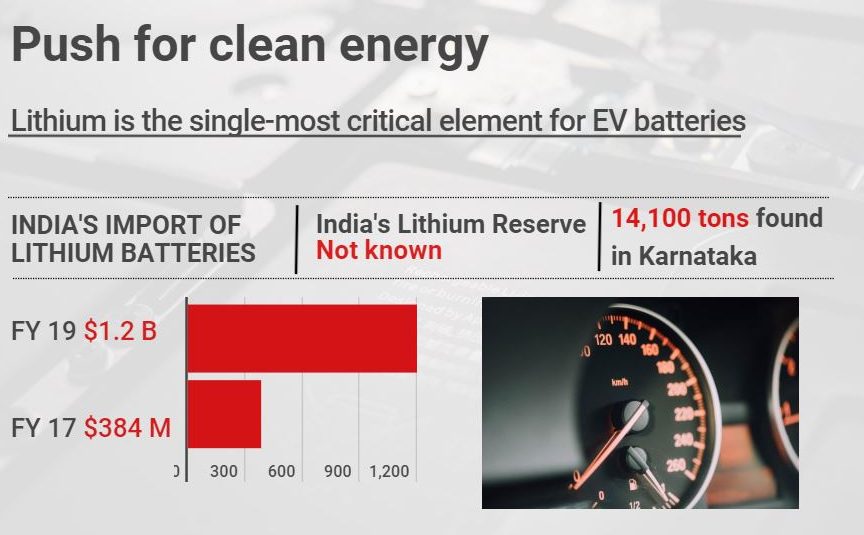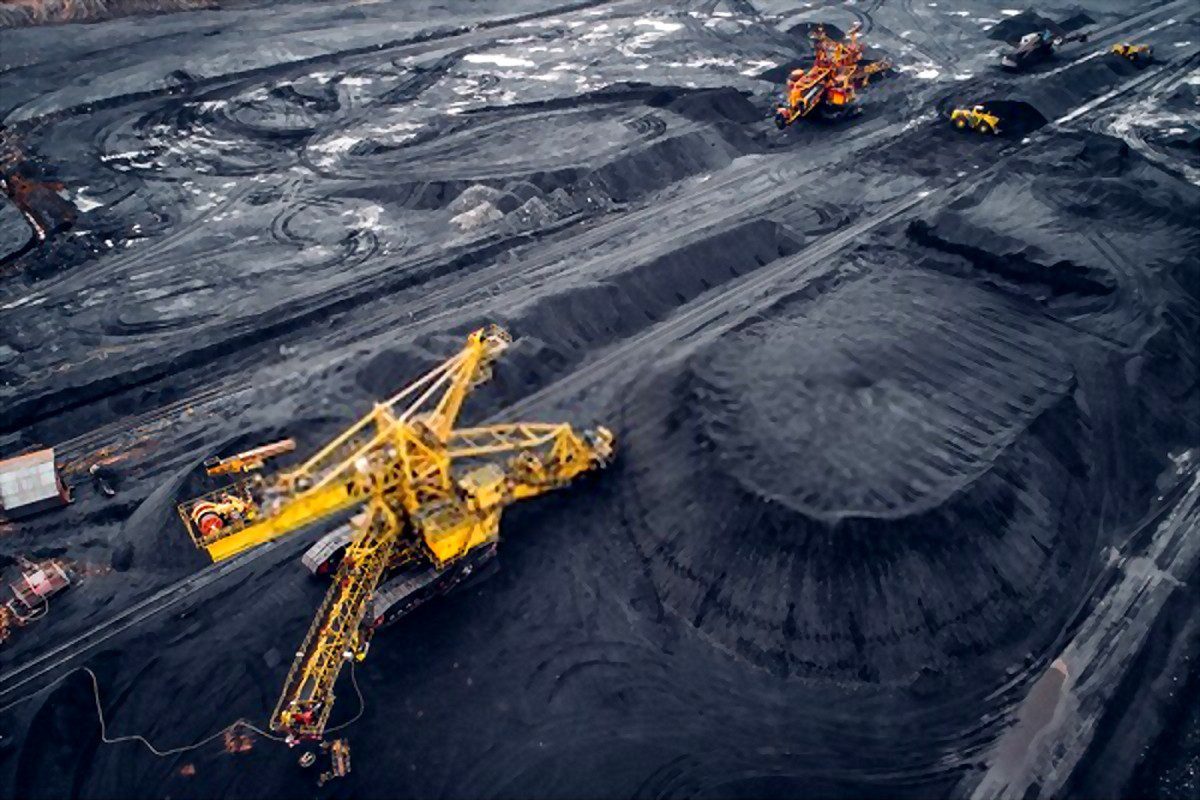The researchers at India’s Atomic Energy Commission have found Lithium Reserves of 14,100 tonnes in a small patch of land surveyed in the Southern Karnataka district, Mandya.
Mandya is 100 km away from Bengaluru, Karnataka. Being a very rare metal Lithium is mainly used in manufacturing batteries for electric vehicles. The discovery could reduce the prices of batteries used in cars and smartphones.
Currently, India imports 1.2 billion USD worth of lithium batteries (2019). This has increased significantly. India imported lithium batteries worth $1.2 billion in fiscal 2019, up from $384 million in FY17. In the 8 months to November 2019, the country’s lithium battery totaled $929 million, according to data shared by science & technology minister Harsh Vardhan in Parliament on 2 February.
“The present data provide a total estimation of available Li2O as about 30,300 tonnes over an area of 0.5 km x 5 km, which works out to about 14,100 tonnes of lithium metal,” the report quoted N Munichandraiah, Emeritus Professor at the Indian Institute of Science and an expert on battery technologies.
But, traces found in Mandya are way too little when compared to major producers. “If one compares with 8.6 million tonnes in Chile, 2.8 million tonnes in Australia, 1.7 million tonnes in Argentina or 60,000 tonnes in Portugal, 14,100 tonnes is not that large,” Munichandraiah said.
Lack of exploration effort but demand is very high

Though India has very little reserves of Lithium and is spread in different places, it can be of significant use. But these reserves are not yet mapped and a serious effort towards exploration is lacking.
These reserves can be of good help to promote the clean-energy push that the government is showcasing to the world. GoI is on the path of implementing a 1.4 billion USD plan to make India a manufacturing hub of electric vehicles.
Experts say while India requires lithium for its clean energy needs, and in far greater amount. So far there has been no comprehensive effort to map local reserves of lithium so far.
Prime Minister Narendra Modi’s government has been pushing hard to promote clean-energy vehicles in India and has unveiled a host of measures, including a $1.4 billion plan to make India a manufacturing hub for electric vehicles.
So far, in the absence of local mines for lithium, India has set up Khanij Bidesh India Ltd to source and acquire mines in Argentina, Bolivia, and Chile. Niti Aayog has set an ambitious goal of building up to 10 large factories to produce lithium-ion batteries over the next 10 years.



